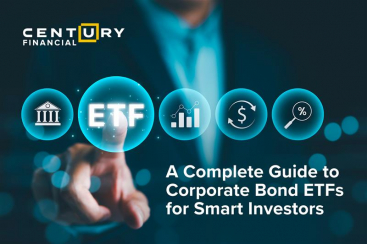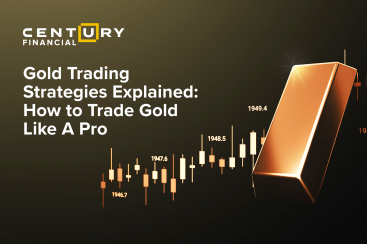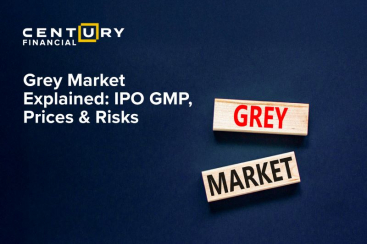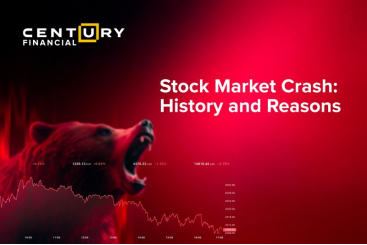Wednesday, April 03, 2024
Comparing the Hang Seng Index (HSI) to Other Global Indices
By Century Financial in 'Blog'

.jpg)
The Hang Seng Index (HSI) is a barometer of the Hong Kong stock market and reflects the Asian economic landscape. This blog delves into how HSI compares with other major global indices, offering investors insights into its unique position in the worldwide market.
A detailed description of the index composition and its performance is mentioned here.
Overview of the major indices of the world
To understand the Hang Seng Index (HSI), we'll compare it with vital global indices.
.png)
.png)

.png)
.png)
Comparative Analysis: HSI vs. Global Indices
Performance Comparison: Historically, HSI has shown unique growth patterns, often influenced by regional economic policies and international trade relations.
Cumulative Returns
.png)
Sectoral Composition: Unlike the tech-heavy NASDAQ, HSI is more diversified, with significant contributions from financials and industrials.
HSI Index Weights
.png)
NASDAQ Composition
.png)
While technology constitutes 52% of the NASDAQ, the Hang Seng index (HSI) shows a more diversified sectoral exposure in HSI.
Market Capitalization and Volatility: HSI's market cap is smaller than that of the S&P 500 but more significant than many European indices. Its volatility is often higher due to regional geopolitical tensions.
Diversification: HSI offers exposure to unique Asian markets, which can be a valuable diversification tool.
The Hang Seng Index's lower correlation with indices like the S&P 500 or FTSE 100 indicates good diversification potential. Correlation coefficients whose magnitude is between 0.3 and 0.5 indicate variables with a low correlation.
Over the past ten years, HSI has shown a correlation of 0.437 with the S&P 500, suggesting it offers significant diversification benefits in a global portfolio.
The Role of HSI in Global Investment Strategies
HSI is crucial for investors targeting Asian markets, offering a mix of stability and growth potential. It's a key component in many Asian-focused funds and ETFs.
Direct Exposure to China's Economic Powerhouse: The HSI offers substantial exposure to Chinese companies, mirroring the growth trajectory of one of the world's largest economies
A Bridge Between East and West: Hong Kong's unique position as a Special Administrative Region of China and its robust financial markets and regulatory framework create a seamless connection for international investors to access China's economic potential. The HSI acts as a conduit to this significant market.

Future Outlook
Looking ahead, the Hang Seng Index is poised at an exciting juncture. China's evolving economic landscape, including policy shifts and market reforms, is likely to significantly impact HSI. As China continues to open up its markets and integrate further with the global economy, HSI could see shifts in its sectoral composition and overall performance. For instance, technology and innovation could see increased representation in the index, reflecting broader global trends.
Additionally, the HSI's future will be shaped by how well it adapts to global economic changes, such as shifts in trade policies, currency fluctuations, and international investment flows. The index's ability to maintain its relevance and appeal in the face of these global challenges will be critical to its continued prominence in the investment world.
In conclusion, the Hang Seng Index is a barometer of Hong Kong's economy and a significant player in the global financial landscape. Its future movements and adaptations will be closely watched by investors worldwide, offering insights into not just Hong Kong's economy but the broader Asian market as well.
Was the article insightful?
Share it with your friends to spread the information.
Source: Bloomberg
This marketing and educational content has been created by Century Financial Consultancy LLC (“Century”) for general information only. It does not constitute investment, legal, tax, or other professional advice, nor does it constitute a recommendation, offer, or solicitation to buy or sell any financial instrument. The material does not take into account your investment objectives, financial situation, or particular needs.
The opinions expressed by the hosts, speakers, or guests are their own and may change without notice. Information is based on sources we consider to be reliable; however, Century does not guarantee its accuracy, completeness, or timeliness and accepts no liability for any loss arising from reliance on this content.
Trading and investing involve significant risk, and losses may exceed initial deposits. Past performance is not indicative of future results. CFDs and other leveraged products are complex instruments that may not be suitable for all investors. Please ensure you understand how these products work, the associated risks, and seek independent professional advice if necessary.
Century is licensed and regulated by the UAE Capital Market Authority (CMA) under License Nos. 20200000028 and 301044.
Please refer to the full risk disclosure mentioned on our website.









.png)
.png)
.png)
.png)


